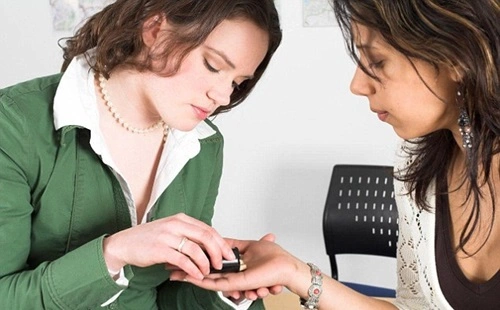Yes, it is illegal to take someone else’s prescription medication in the United States. Prescription drugs are regulated under federal and state laws, and using someone else’s medication, even with their consent, can lead to serious legal consequences. This prohibition applies to both controlled substances, such as painkillers, and non-controlled prescription drugs like antibiotics.
Legal Framework Surrounding Prescription Medications
Federal Laws
1. Controlled Substances Act (CSA):
- The CSA, enforced by the Drug Enforcement Administration (DEA), categorizes certain prescription medications as controlled substances due to their potential for abuse or dependency. These include opioids, benzodiazepines, and stimulants like Adderall.
- Possessing or using a controlled substance without a valid prescription is a federal crime.
- Sharing or selling controlled substances is classified as drug trafficking, a serious felony.
2. Food, Drug, and Cosmetic Act (FDCA):
- Under the FDCA, prescription drugs must be dispensed only with a valid prescription issued to the person for whom the medication is intended. Using another person’s prescription violates this act and can lead to criminal charges.
State Laws
While federal laws apply nationwide, states also have their own regulations:
- California: Taking someone else’s prescription is classified as drug possession, punishable by fines, imprisonment, or participation in drug diversion programs.
- New York: Unauthorized use of prescription medications, especially controlled substances, can lead to misdemeanor or felony charges depending on the drug’s classification.
- Texas: Possession of a controlled prescription drug without a valid prescription can result in fines, jail time, and a permanent criminal record.
Why Taking Someone Else’s Prescription Is Illegal
Patient-Specific Prescriptions
Doctors prescribe medications based on an individual’s medical history, current condition, and unique health needs. Taking someone else’s medication can be dangerous because:
1. Dosage and Side Effects: The dosage may not be suitable for another person, leading to potential overdose or harmful side effects.
2. Drug Interactions: Medications can interact negatively with other drugs or underlying health conditions, causing serious complications.
3. Allergic Reactions: Without proper medical supervision, there’s a risk of severe allergic reactions.
Abuse and Addiction Risks
The misuse of prescription drugs, particularly controlled substances, contributes to the growing opioid epidemic and other substance abuse crises in the United States. Laws prohibiting unauthorized use aim to prevent addiction and limit the availability of high-risk medications.
Legal Consequences of Taking Someone Else’s Prescription
1. Criminal Charges:
- Possession Charges: Using someone else’s prescription medication can result in charges of illegal possession of a controlled substance.
- Trafficking or Distribution: If someone provides their prescription drugs to another person, both parties may face distribution or trafficking charges.
2. Fines and Jail Time:
- Penalties vary depending on the drug’s classification and the jurisdiction. For example, possessing a Schedule II drug like oxycodone without a prescription can result in fines up to $5,000 and imprisonment for up to 5 years for a first offense.
3. Civil Penalties:
- Health insurance fraud may apply if the medication was obtained under false pretenses, leading to additional fines and legal repercussions.
4. Professional Consequences:
- Convictions can impact professional licenses, job prospects, and eligibility for certain educational programs.
Medical and Ethical Considerations
Beyond the legal implications, using another person’s prescription undermines the ethical standards of medical care:
- Self-Medication Risks: Self-diagnosing and using unprescribed drugs delays proper medical treatment.
- Harmful Outcomes: Misusing antibiotics contributes to antibiotic resistance, while misusing opioids increases the risk of addiction and overdose.
Recent Cases and Updates
1. California, 2023: A college student faced misdemeanor charges after being caught with a friend’s ADHD medication. The case highlighted the growing misuse of stimulants among students.
2. Texas, 2024: A man was charged with drug possession after taking his spouse’s prescription painkillers for back pain. The case resulted in mandatory drug counseling and probation.
3. Florida, 2024: Authorities launched an awareness campaign about the dangers of sharing prescription medications, emphasizing the legal and health risks.
Alternatives to Taking Someone Else’s Prescription
If you need medication but don’t have a prescription:
1. Consult a Doctor: Seek medical advice to receive a proper diagnosis and a prescription tailored to your needs.
2. Explore Over-the-Counter Options: For mild conditions, non-prescription medications may provide temporary relief.
3. Seek Financial Assistance: Programs like Medicaid or pharmaceutical assistance programs can help cover the cost of prescriptions.
Common FAQs
Q1. What happens if I’m caught taking someone else’s prescription?
Ans: You could face criminal charges, including fines and jail time, especially if the medication is a controlled substance.
Q2. Is it illegal to share non-controlled prescriptions like antibiotics?
Ans: Yes. Even though non-controlled medications are less regulated, sharing them is illegal and can result in legal penalties.
Q3. Can I use a family member’s prescription in an emergency?
Ans: No. Using someone else’s prescription is still illegal, even in emergencies. Always seek medical advice for proper treatment.
Q4. What if I take a prescription accidentally?
Ans: Accidental use may not lead to legal consequences, but it’s essential to contact a healthcare provider or poison control immediately.
Q5. What are the risks of taking someone else’s prescription?
Ans: Risks include incorrect dosing, dangerous drug interactions, allergic reactions, and potential addiction or overdose.

